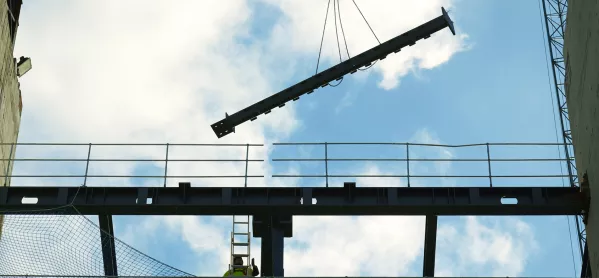It goes without saying that most schools don’t relish the prospect of an inspection.
But when you have a longstanding and totally outdated “requires improvement” rating, things are different.
“We are so glad you’re coming!” I told the lead inspector.
Quick read: My ‘outstanding’ school is structurally racist
Quick listen: The truth about mental health in schools
Want to know more? How schools can address social inequality
As one of the first schools to be inspected under the new framework, our self-evaluations had not been quality-assured in this new era, but other than that we were good to go.
Here are some of the things we learned:
The phone calls
I love this new aspect. I had two conversations with the lead inspector. He opened the first with, “Tell me about your school”.
And so I did, celebrating all that we are doing well, and being honest about where we are in general and when considered against the new framework.
He ended by saying, “This sounds like a fun school”, and I knew that he had really listened to what I had told him.
Yes, he had looked at our website and seen our data, but I had been able to shape what the inspectors would be looking at over the next two days and that was infinitely reassuring.
The deep dives
Phonics and early reading were non-negotiable as deep dives and he suggested maths. I then selected music, PE and science.
Each dive started with an in-depth conversation with the subject leader. They had written down everything they wanted to get across, what they were celebrating and what they were working on - they hardly drew breath.
Then there was time in class watching learning, chatting with pupils, looking in books, talking to teachers - all with the subject leader.
I was kept informed of the progress of these dives across the two days and the same question was asked repeatedly: “Does this sound like your school?”
My answer was always “Yes”.
Curriculum focus
We decided to spend summer 2019 nailing our intent, then take this academic year to train our subject leaders and implement our vision for an exceptional curriculum.
I made sure each of my subject leaders knew that there was no expectation on them at all to portray our school as being in a position it simply wasn’t in.
We shared our master plan with the inspection team, showing them what had been achieved and explaining why we hadn’t rushed through “exemplary units” that no one believed in to tick a few boxes.
They told us they had faith in where we were going and to keep it up.
‘Outstanding’ really is exemplary
If you have just one bullet point missing from the ‘good’ criteria for quality of education, then your overall grading cannot be ‘outstanding’.
While we had self-evaluated ourselves as “good”, it was frustrating to see how easy it was to just miss out on that top level in the other categories.
Our missed bullet points were all totally fair but they were tough. The inspection report is much briefer now, so many of the lovely things that were said previously don’t make it to paper.
Because of this, we are running a presentation evening for parents to give them all the details - there is so much to celebrate.
Staff wellbeing is crucial
The inspection team was keenly aware of wellbeing, checking with me before and during the process as to how the staff were feeling.
They truly wanted to see that our staff were happy, valued and not overworked, using the staff survey but also by talking to them and getting a feel for the vibe of the school.
I am incredibly proud of my team and the culture of positivity that we have.
But that takes a long time and lots of genuine investment - we need to be brave and truly put our staff first, before Ofsted outcomes. It is then that they will shine in front of a team of visitors.
Sam Hunter is headteacher of Montpelier Primary School in Plymouth, Devon. She tweets @samhunterHT


